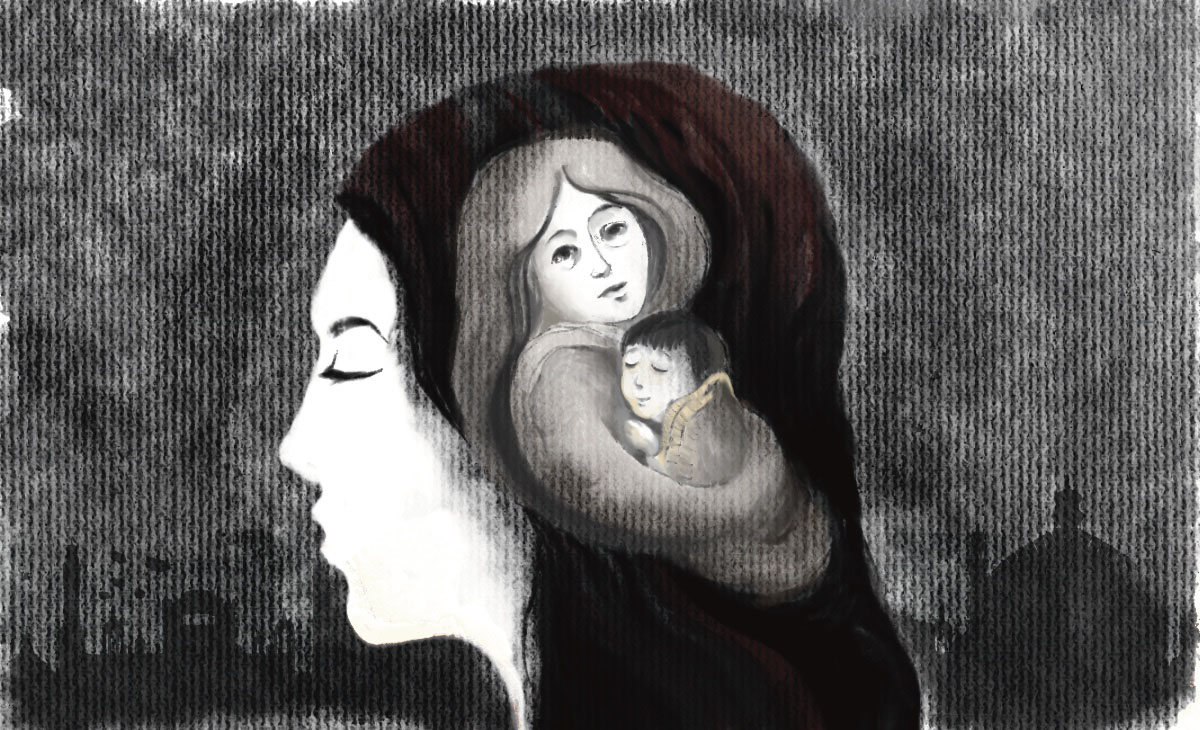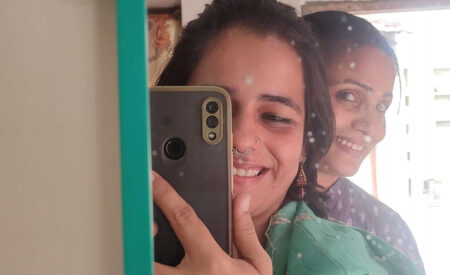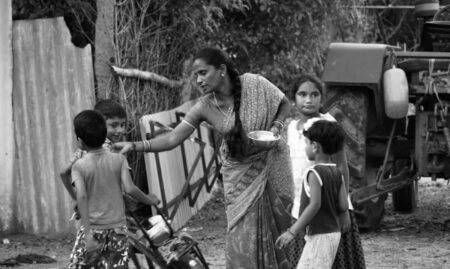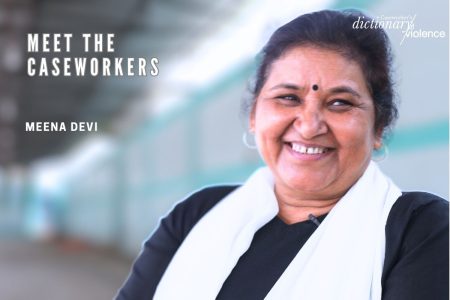A caseworker, through her work on gender-based violence, becomes privy to how women’s lives are shrouded by the big and small compromises they have to make in their everyday lives. But what happens when the caseworker confronts these samjhutas in her personal life?
Especially when samjhautas are made in the aftermath of family disputes and powerplay, what emotions do they release for the caseworker? Does she suffocate and wither away? Does she experience anger, guilt, depression or melancholy? Do families and loved ones ever manage to recognise and hold these feelings for women who live out the emotional costs the samjhautas demand of them?
A caseworker from Sadbhavana Trust, Lucknow, who works on gender-based violence, lays bare her heart in this account of how the word samjhauta continues to fill her being with a sense of suffocation despite her having worked through the toughest compromises of her life.
The Third Eye worked with 12 caseworkers working on gender-based violence in rural and small town Uttar Pradesh, and through a process that included immersive writing, theatre-based pedagogies and year long workshops, the caseworkers became the lexicographers of The Caseworkers’ Dictionary of Violence.
Samjhauta! Perhaps I never understood the meaning of this word until I got married. But slowly, over time, life taught me the meaning of compromise a bit too well. As I began to think about this word, I found myself standing at that point in my life where I had done so many—I don’t know how many—samjhautas.
In my life, the biggest compromise I ended up making was giving up my daughter to my husband. Back then, the whole world had turned against me. Everyone said the same thing, “Do not bring your daughter back,” “Let her stay with your shauhar.” They would try to pass their own decisions as mine, and pressure me in many ways. It felt like people were taking pleasure in separating me from my daughter. At that time, all I wanted to do was to scream at the top of my lungs, “She is my daughter and I have no qualms about raising her alone, all by myself.” But people kept piling on to me. I was helpless and ended up making the compromise; of living away from my daughter. This was that one samjhauta that I simply could not agree with. It suffocated me.
My family did not like my husband at all. They wanted my husband to arrange a place for my daughter and I to live separately from his family, which he did not do. Thus, they refused to accept my daughter, and were only ready to take me in.
My parents wanted nothing to do with my daughter. So, I ended up losing my daughter in the conflict between my husband’s family and my own.
On returning from the hospital after the delivery, my husband took my daughter away, right before my eyes. Such was the pressure from home that I could not even meet her out of sheer terror. In this way, I spent 13 months longing for her. Neither did the courts support me in getting my daughter back nor did society help me out. At that time, I was struggling, both socially as well as financially. I had hardly recovered from my C-section when I started working as a computer operator. Two months had passed and I had still not been able to meet my baby. Even with so much going on in my life, I was obsessed with one thought and that was, “I have to bring my daughter back, and that is final!”
Day and night, all I could see was my daughter’s face. My heart was never at peace, be it a moment of celebration or a moment of quiet. I lost my appetite. Sorrow settled itself on my face. I would keep cursing myself, thinking, “What is wrong with me? Why can’t I bring my own child back?” I had never imagined that a time would come when I would be separated from my own child! Whenever I came across a woman with her child in her lap while travelling in an auto or a taxi, I would feel tormented. My only wish at that moment was to hold that child in my lap.
Even today, when I come across an infant, my heart becomes restless. Perhaps somewhere, the stifling hold of that compromise is still present—the compromise that I made by giving up my own daughter. Even today, I feel I feel a tightness grip my heart as I think how can someone simply take away a new born from her mother?
Let him raise the daughter, you go ahead and marry someone else and live comfortably. You can always have more kids. People would say these things and then add that they were saying these things for my own good. But the truth was that all of this ‘good talk’ smothered me.
I spent every single day thinking of my daughter. 13 months passed like this, but I did not change my decision. It was at this point that I met a caseworker from Sadbhavana Trust who directed me to their office where they heard my story. Using both social pressure and legal provisions, my daughter finally came back to me. She lives with me now. She is studying in one of the best schools in Lucknow. But I still feel the suffocation of my past compromise. Whenever I listen to a woman talk about being driven out of her home and being separated from her children, I am able to see the same suffocation imprinted on her face.
It is because of all of this that I have decided to spend my life alone. It is not true that you cannot be happy without a husband. I am happy with the life I have built along with my daughter. Together, we go wherever we feel like. My biggest happiness is my daughter.
Translated from Hindi by Pakhi Pande with inputs from the TTE Team.





